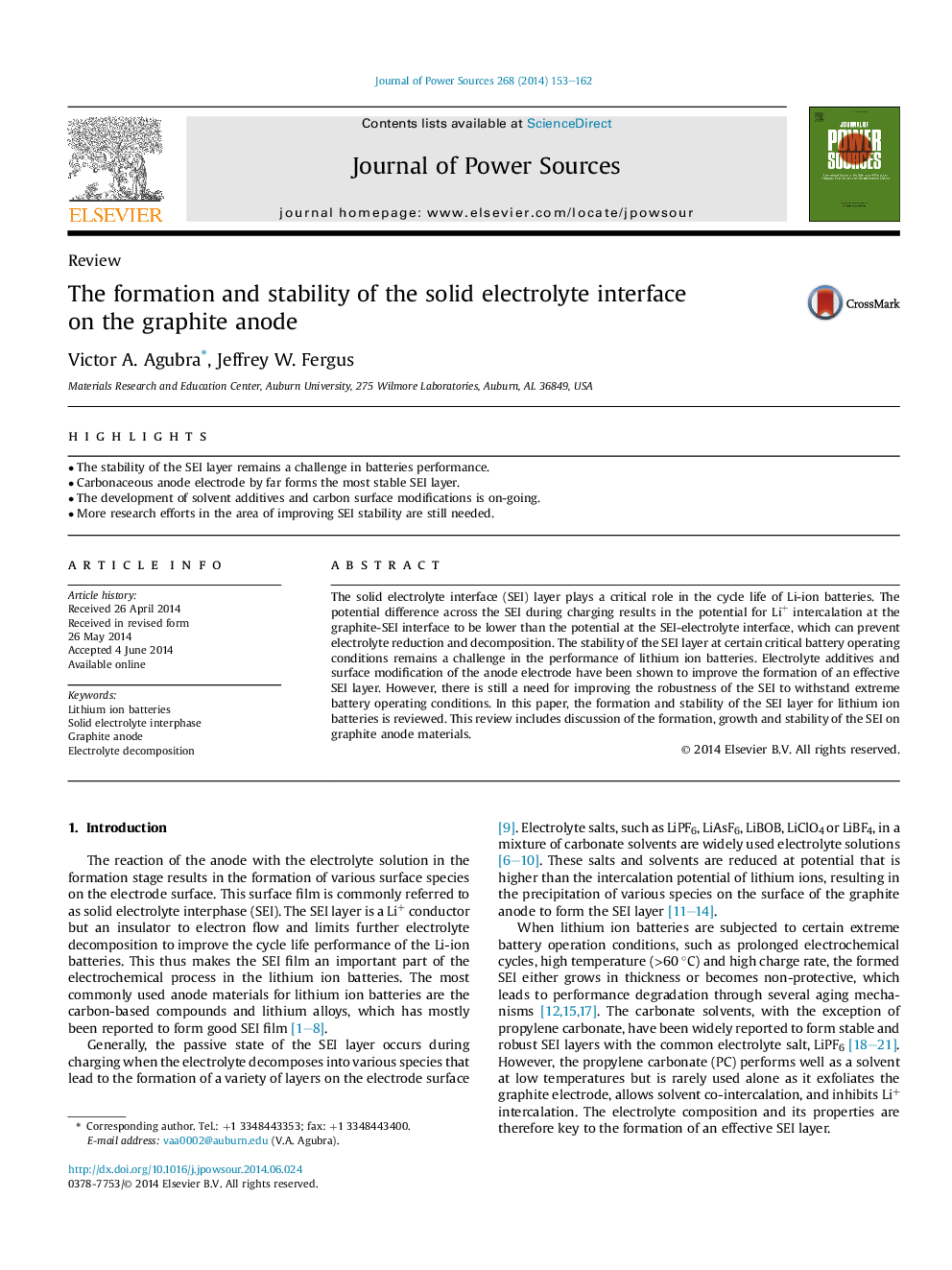| Article ID | Journal | Published Year | Pages | File Type |
|---|---|---|---|---|
| 7735785 | Journal of Power Sources | 2014 | 10 Pages |
Abstract
The solid electrolyte interface (SEI) layer plays a critical role in the cycle life of Li-ion batteries. The potential difference across the SEI during charging results in the potential for Li+ intercalation at the graphite-SEI interface to be lower than the potential at the SEI-electrolyte interface, which can prevent electrolyte reduction and decomposition. The stability of the SEI layer at certain critical battery operating conditions remains a challenge in the performance of lithium ion batteries. Electrolyte additives and surface modification of the anode electrode have been shown to improve the formation of an effective SEI layer. However, there is still a need for improving the robustness of the SEI to withstand extreme battery operating conditions. In this paper, the formation and stability of the SEI layer for lithium ion batteries is reviewed. This review includes discussion of the formation, growth and stability of the SEI on graphite anode materials.
Related Topics
Physical Sciences and Engineering
Chemistry
Electrochemistry
Authors
Victor A. Agubra, Jeffrey W. Fergus,
